Where did the investigation lead us:
- 11 direct assignments from hospitals in many health districts of the Ministry of Health in just 14 months – Just one award by a tendering procedure
- Who is this family-owned P.C. that was founded after the outbreak of the pandemic and without any history in the field, did major projects with hospitals
- The usefulness of antimicrobial copper and the question in Parliament by a PASOK MP
- Necessary after the tragedy of Tempi the requirement of certification on the part of the State for the origin of copper
- How to find out if it’s stolen from railroads
by Vassilis Galoupis
A number of questions arise for the Minister of Health, Thanos Plevris, and the administrations of specific hospitals regarding the massive direct assignments of hundreds of thousands of euros to a specific newly established copper products company based in Kifissia (Evrotas 27) in the last 14 months.
Data Journalists are today publishing a list of assignments made to the private company, “HELLENIC COPPER P.C.”, which was founded during the years of pandemic, in August 2020. Since then, it has been active mainly with public organizations, such as hospitals.
Although we are at the end of the pandemic, with the Ministry of Health of Mr. Plevris gradually deciding to lift all measures for the coronavirus, Greek hospitals have recently been in an orgasm of copper product installations with assignments, usually, directly, that use COVID as an excuse.
The antiseptic and antimicrobial action of copper has been known since antiquity and is not disputed.
However, for the relevant signatures of contracts with hospitals, no specific certifications are required, which even led to a question asked to the Minister of Health in January, as we will see later.
Data Journalists’ survey identified 11 direct assignments from hospitals in various regions under the Ministry of Health between December 27, 2021, and March 7, 2023. A 12th contract arose after a tender. The total amount received by just one specific company, Hellenic Copper P.C., during this period, exceeds 580,000 euros.
On the balance sheet of the newly established family company, its net turnover for 2021 was 145,635 euros, according to official data.
In this market of copper products with antimicrobial activity, several companies with more experience are active in our country. Why all the projects were given directly to Hellenic Copper is a question that needs to be answered. In fact, this company during 2022 managed to multiply its size by assignments from Greek hospitals under the Ministry of Health.
It is also characteristic that tenders range from 30,000 – 37,000 euros with VAT so that they are deliberately below the threshold that allows urgent direct award procedures due to COVID.
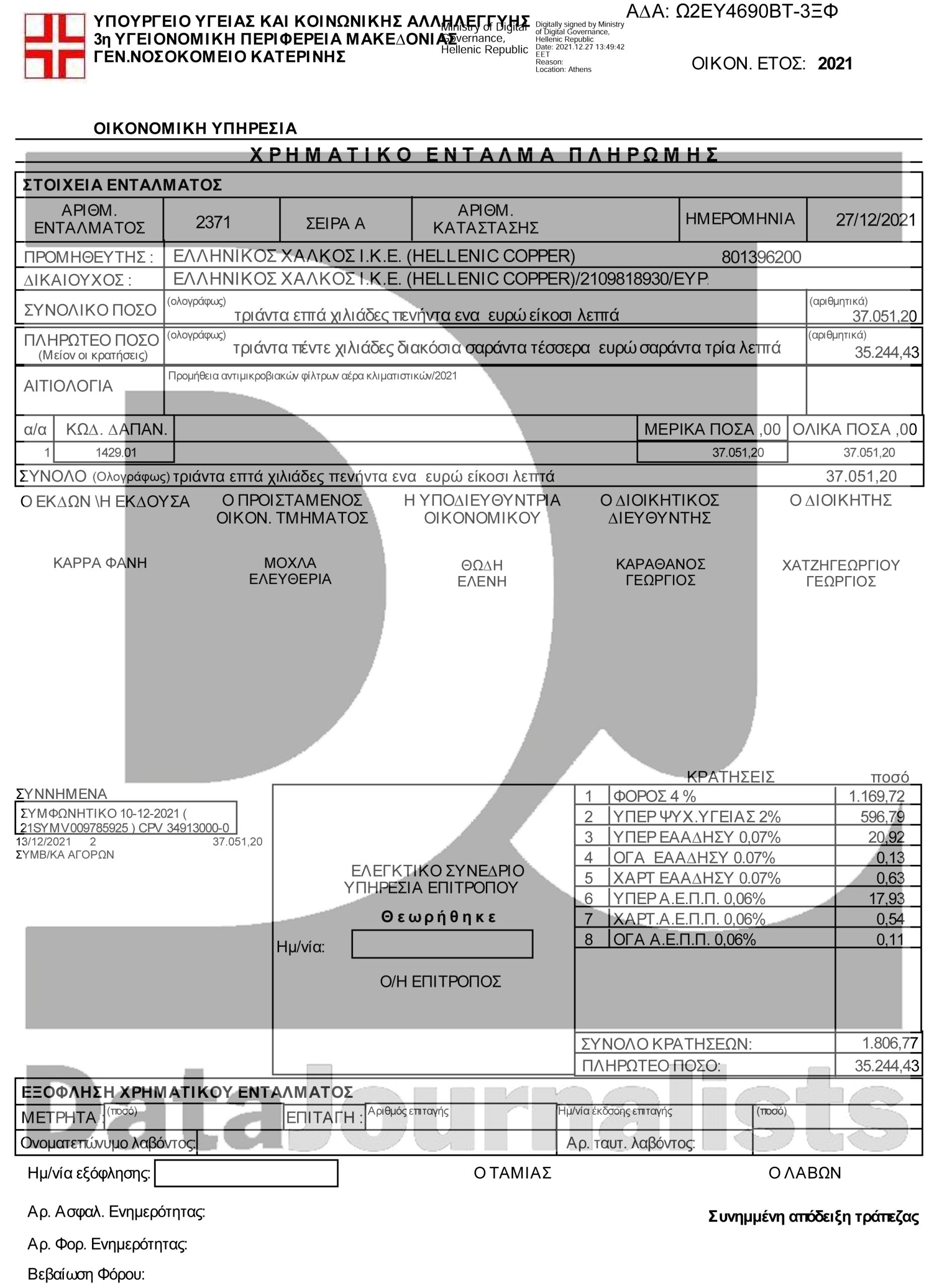
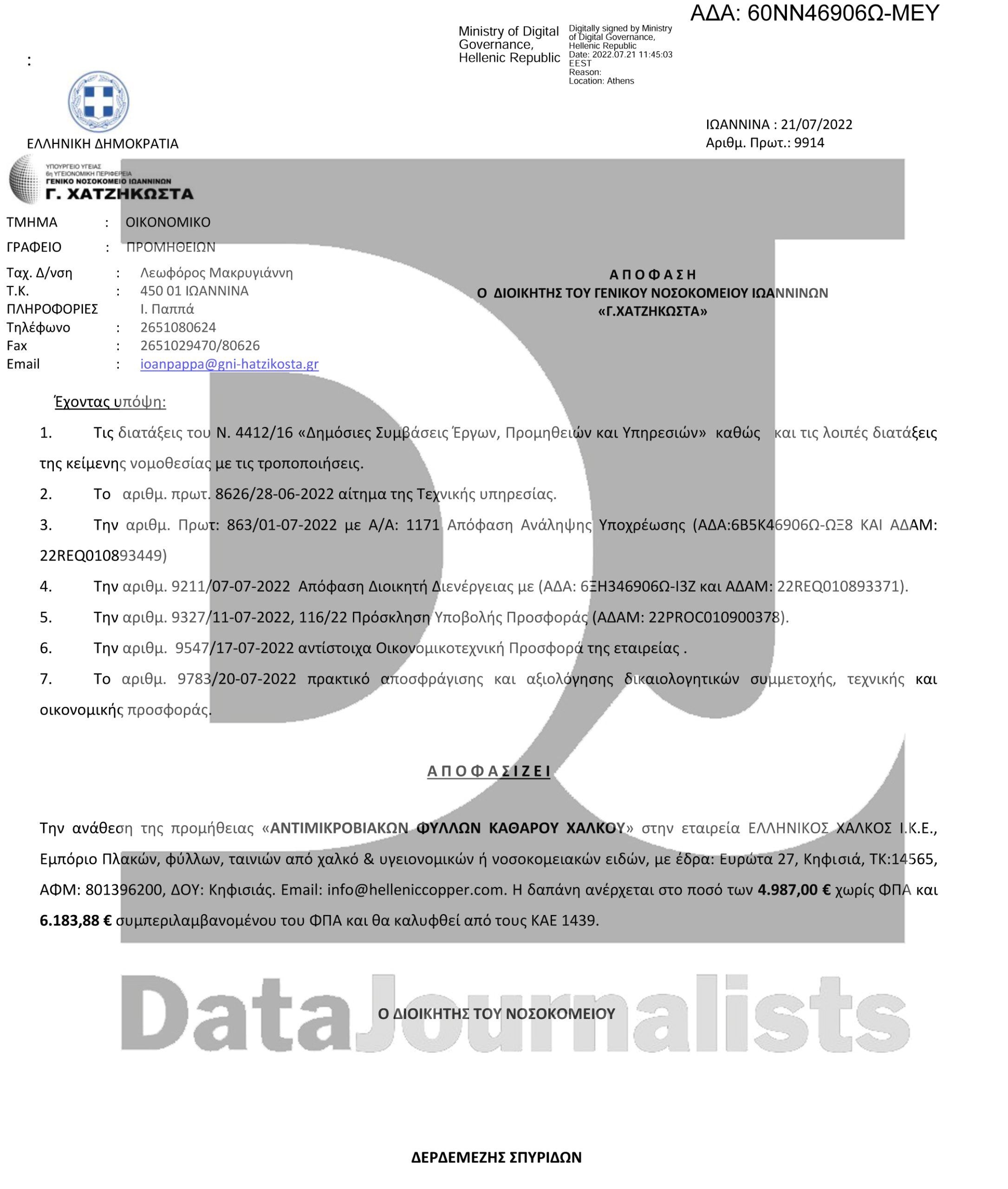
37.187 euro from Theagenio hospital
258.000 euro from Zakynthos hospital (pdf HERE)
Argolida’s hospital (pdf HERE) and Corfu hospital (pdf HERE)
Hospital for children Agia Sofia
……..
All assignments of Hospitals from 27.12.21 – 7.3.2023
Katerini: On December 27, 2021, the General Hospital of Katerini, which belongs to the 3rd Health District of the Ministry of Health, spends 37,051 euros, addressed to the Greek Copper P.C.
IOANNINA: On July 21, 2022, the Director of the General Hospital of Ioannina “G. Hatzikostas” decides “to award the supply of” PURE COPPER antimicrobial sheets “to the company HELLENIC COPPER P.C. with an expenditure of 6,183 euros.
Thessaloniki: On September 15, 2022, the “Theagenio” Cancer Hospital of Thessaloniki, which belongs to the 4th Health District of the Ministry of Health, announces a direct assignment “for the taking of measures to avoid the spread of COVID as well as all viruses that show dispersion on the surfaces with the most frequent use”, giving 37,187 euros to Hellenic Copper.
ZAKYNTHOS: On October 17, 2022, the General Hospital of Zakynthos, which belongs to the 6th Health District of the Ministry of Health, published a contract for the award of an “antimicrobial shielding” project, with copper, air filters, generators, and disinfection equipment, amounting to 258,510 euros. The contractor is Greek Copper. The procedure was carried out by electronic public tender.
According to the contract, the contractor should invest in common touch surfaces with copper, and apply air filters with copper ions to the air conditioning units “as it has been found by recent studies and certificates of effectiveness, that reduces the microbial load on their surface by more than 99% against COVID-19 and H1N1 viruses”, supply a generator for the production of hypochlorites acid invoking again COVID, etc., supply of a disinfection channel for the medical equipment of the Hospital, again with reference to the coronavirus.
As stated in the terms, among others, there is a technical offer, certification by the University of West Attica that the countries of production of these products are Greece and South Korea and who are the companies from which the business units come:
Following the completion of the works, the company provides a certificate of copper plating work with 99.9% pure copper antimicrobial products for the antimicrobial shielding of the Hospital. A sample of the certificate has been deposited in the technical offer in the electronic file”.
Argos: On October 18, 2022, a contract is published by the General Hospital of Argolida for the supply and installation of antimicrobial copper on the common touch surfaces and with antimicrobial pure copper products.
The contract is again close to 30,000 euros, namely 37,076 euros, which covers direct awards due to the pandemic. The contractor was Greek Copper.
The contract only mentions the following regarding the certifications: “Antimicrobial products of pure copper (antimicrobial sheets of pure copper, antimicrobial transparent copper films & antimicrobial heat-shrinkable copper tube films) should carry certificates of effectiveness for their antimicrobial action from a laboratory accredited by the National Accreditation System and the National Organization for Medicines, specifically for the effectiveness of antimicrobial action against SARS-COV-2-COVID-19 and other microbes and bacteria such as for example the Golden Staphylococcus (S.Aureus), Eryschia Koli (E.Coli), etc., as well as additional certifications 4 from recognized bodies and universities of the interior and/or abroad against viruses & microbes.
Before the application of copper plating, it is required for the correct application of the products, to be preceded by cleaning and thorough microbial disinfection of all the points to be placed, at the full expense and responsibility of the contractor by a specialized and licensed by a state-owned workshop with special machines bearing a CE certificate.
The contractor will have the ISO certifications of its sector, namely Quality ISO9001:2015, Environment ISO14001:2015, and Health and Safety at Work ISO45001:2018, with the scope of certification for the placement of antimicrobial copper products. It should be licensed by the Ministry of Rural Development and Food with a specialization in microbial.
Corfu: On November 10, 2022, there is another payment order from the General Hospital of Corfu “Agia Irini” which belongs to the 6th Health Ministry. And this time the job is taken by the Greek Copper P.C. with a direct award and amount, once again, at 37,076 euros.
GENNIMATAS – Thessaloniki: On November 18, 2022, from the G. Gennimatas – Agios Dimitrios Hospital of Thessaloniki, which belongs to the 3rd Ministry of Health, a warrant of 18,600 euros is issued to Hellenic Copper. On 23.11.2022 there is still a payment order to the same P.C., amounting to 18,476 euros. And on 2.3.2023 another one worth 23.662 euros for the supply of antimicrobial copper coating material.
PTOLEMAIDA: On December 15, 2022, the General Hospital of Ptolemaida “Bodossakeio” approved “the assignment for the “Investment of common touch surfaces of the Hospital with copper sheets in the context of prevention of transmission of infections” to the Economic Operator Hellenic Copper PC with a total contract value of 29,973.00 euros + VAT 24%. Total contract value: EUR 37 166.52 including 24% VAT ”.
PAIDON “AG. SOFIA”: On 27.12.2022 the hospital “Paidon Ag. Sofia” approved the conclusion of a contract with Hellenic Copper P.C. for 37,076 euros. It was preceded by an invitation posted just five days earlier “to express interest in the direct award procedure”. According to the minutes of the BoD, two bids were submitted. Greek Copper with 29,900 excluding VAT and Health Dynamics with 29,990 euros. The direct award was made to Hellenic Copper by the Hospital by unanimous decision.
Grevena: On March 7, 2023, the General Hospital of Grevena, which belongs to the 3rd Ministry of Health, gave 37,187 euros to this Private Company for the decontamination gate.
(pdf HERE)
(pdf HERE)
(pdf HERE)
Who is the newly established Private Company that supplies hospitals?
The company “HELLENIC COPPER P.C.” was founded on August 11, 2020, with GEMI number 155910201000 and its headquarters in Voula. Its purpose is the wholesale trade of copper plates, sheets, and strips, the wholesale trade of copper waste and residues, the production of semi-finished copper products, the retail trade of metal fabrics, grains, etc. of iron, steel, or copper wire, etc.
The initial capital of the company amounted to 30,000 euros, with partners at the time of its establishment:
Spyridon Souliotis of Anargyros and Sotiria, resident of Voula.
Anneta Souliotis, daughter of Anargyros and Sotiria, resident of Voula, at the same address as Spyridon Souliotis.
Achilleas Tsitsipas, son of Vasileios and Eleftheria, resident of Athens.
On December 19, 2022, with a new posting at GEMI, we find that the composition of the share register has changed. In particular, Achilleas Tsitsipas is not on the list, and in his place is now Sotiria Louloudis.
Spyridon Souliotis and Anneta Souliotis remain in the company and Sotiria Louloudis, daughter of Georgios and Agoroula, resident of Voula with the same address, has been added.
It is evident that the three members are related to each other. The headquarters of the company is now Kifissia. Spyridon Souliotis owns 92% of the company, Anneta Souliotis 6%, and Sotiria Louloudis 2%.
The balance sheets
From the two balance sheets of the company for 2020 and 2021 that have been published, one finds that its turnover depends largely on the assignments of the State.
According to the balance sheet, the net turnover for 2021 was 145,635 euros. The company’s total assets are 227,799 euros. For 2022, the corresponding figures are not available.
As Hellenic Copper states on its website “The Hospital Infectious Diseases Committees of our country, advised that due to the antibacterial and antiviral properties of copper, it is proposed to invest common touch surfaces with antimicrobial copper in health services as a means to limit the transmission of all viruses and pathogenic bacteria, including SARS-CoV-2 (Covid-19), to control in-hospital infections, reduce antibiotic consumption, reduce antibiotic resistance and reduce hospitalization days.
……….
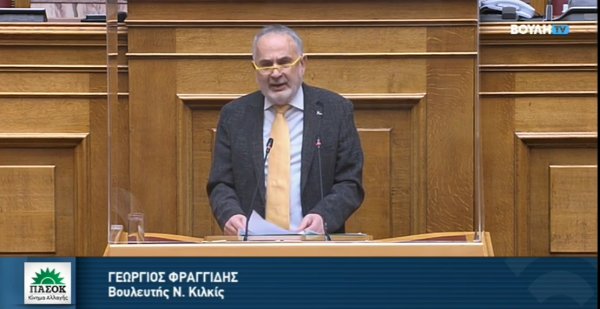
The MP of PASOK, Georgios Frangidis
The assignments to HELLENIC COPPER P.C. discussed in the House
On January 9, 2023, PASOK MP Georgios Frangidis tabled a question in Parliament to the Minister of Health, Thanos Plevris.
The question concerns the direct assignments of public hospitals to the company “Hellenic Copper P.C.”, with the MP asking for explanations on the antimicrobial copper surface coating projects and on the supply of a disinfection channel. PASOK MP refers to “unjustified direct assignments to a newly established company” and invites Th. Plevris to reply on the choice of the direct award procedure, as well as on the criteria by which this company was selected.
In detail, the question:
“The company “Hellenic Copper P.C.” was founded on 11/8/2020, obviously taking advantage of the business opportunities offered by the coronavirus pandemic and the need for health strengthening and shielding of hospitals and other public spaces. In the business register, the main branch of activity (SMR) is the wholesale of copper plates, sheets, and strips and a total of 19 SMRs, including trade in sanitary or hospital goods.
The “Hellenic Copper P.C.” with customers mainly public bodies, such as Ministries, Schools, and Hospitals, appears last year in the posts in Diavgeia and in the Central Electronic Public Procurement Register taken from the Greek hospitals, with the procedure of direct award, two specific projects:
Surface coating with antimicrobial copper and
Supply of disinfection gate
The price for each project separately is approximately the ceiling of the direct award, i.e. 30,000 euros plus VAT, i.e. 37,200.
It should be noted that this is not the only company that supplies a disinfection channel of type SP 209 for hospital use and conducts surface bronzing, as a small online survey shows that there are other companies that have similar products and services.
In recent days, the case of another newly established company called “Health Dynamics P.C.”, which supplied the Ministry of Justice with an automatic thermometry and disinfection gate worth 14,260 euros, was published through the direct award procedure.
The Minister of Justice is reportedly aiming to place another ten such machines in courts in Athens, Piraeus, and Thessaloniki, a fact on which serious reservations have been expressed by the Athens Bar Association and the Board of the Piraeus Bar Association, due to the issues of efficiency and security raised.
The tactic of direct award of supplies is an emergency solution, which after three years of pandemic is an unjustified choice. It reinforces opacity, vested interests, and unfair competition while suggesting a desire for our favor. Unfortunately, the direct award is a process that the New Democracy government not only does not prevent but seems to prefer, since only in the first half of 2022 in this way 66,219 contracts were signed (out of a total of 95,910), with a budget of 767.6 million euros.
PASOK – Movement for Change has repeatedly expressed its opposition to such opaque practices and has asked the government for accountability for health supplies, something the government has not done so far. On the contrary, it strengthens these practices by legislating on a quarterly basis the possibility of direct contracts for health supplies, invoking after three years the supposedly exceptional conditions of the pandemic.
In view of the above,
I am asking you, Minister:
Are there scientific studies and official scientific information on the medical and technical data that document the effectiveness of disinfection channels and antimicrobial copper coating in preventing coronavirus transmission, so as to recommend their immediate application in public hospitals? How is the non-hazardousness of these disinfection gates to public health to be presumed?
Does the company “Hellenic Copper P.C.” have a certificate of suitability for these projects from recognized health institutions, European or international, and especially from the World Health Organization (WHO)?
Why was the procedure for the direct award of the aforementioned works followed by the hospitals and on the basis of which criteria was the company Hellenic Copper P.C. chosen as a supplier at a time when it is not the only company that has the specific know-how and products?
Do you intend to provide a reasoned justification for the direct procurement in the health sector, as well as for the progress of private donations of medical equipment to hospitals made with a view to responding more effectively to the pandemic?’
So far, no specific answer has been given from the Minister of Health to the MP’s questions.
(pdf HERE)
……
Certifications are required for copper origin
Without knowing or wanting in any way to imply anything about any company, involved or not in similar competitions involving copper, we are obliged to make a point, arising exclusively from the latest developments in the news.
Greece does not produce copper primarily. Since the deadly accident in Tempi, a major issue has been created with the theft of materials and cables on Greek railways and beyond. It would be self-evident that public tenders and contracts relating to copper would henceforth explicitly provide for the indication of the origin of all products containing this metal, especially when they come from copper on the domestic market.
On the part of the State, a method of certification is required by the treaties, as is the case abroad and we will see later.
From the majority of contracts and terms, we have not yet found such a requirement on the part of the State for certifications and proof of the origin of the raw material of copper before its processing.
With the sole exception of the contract of the Hospital of Zakynthos, which is mentioned, perhaps due to the amount of the assignment that “the countries of production of the offered items are Greece and South Korea”, but without further details.
Indicatively, in the contract notice of the hospital of Argos, the General Conditions of Requirements for pure copper products are:
“The above certificates of pure copper antimicrobial products will be deposited in the tender dossier, under penalty of exclusion, through which it appears that they are suitable for antimicrobial use.
The tender dossier should also include samples of all three (3) types of pure copper antimicrobial products (pure copper antimicrobial sheets, antimicrobial transparent copper films & antimicrobial heat-shrinkable copper tube films).
The contractor is obliged to supply the above-required quantity of the various antimicrobial sheets of pure copper and then to start the process of their application on all the above-mentioned touch surfaces until all the above quantity is exhausted.
At any points required, the antimicrobial transparent copper films and the antimicrobial heat-shrinkable copper tube films will be placed, which will be cut for their placement in the corresponding dimensions of the ready antimicrobial pure copper sheets of the above table.
Before the application of copper plating, it is required for the correct application of the products, to be preceded by cleaning and thorough microbial disinfection of all the points to be placed, at the full expense and responsibility of the contractor by a specialized and licensed by a state-owned workshop with special machines bearing a CE certificate.
The contractor will have the ISO certifications of the field of Quality ISO9001:2015, Environment ISO14001:2015, and Health and Safety at Work ISO45001:2018, with the scope of certification the placement of antimicrobial copper products, which will be deposited under penalty of exclusion in the tender dossier.
It should be licensed by the Ministry of Rural Development and Food with a specialization in microbial disinfection which will be deposited under penalty of exclusion in the tender dossier.
At least one (1) person in the contractor’s company should have a training certificate from a University in our country, regarding the cleaning, disinfection, and sterilization of surfaces, spaces, and objects from infectious diseases such as SARS-CoV-2 (Covid-19).
The sponsor should be certified by a Higher Education Institution that the antimicrobial products he/she markets and places, have antimicrobial and antiviral properties, effectively contributing to the fight against pandemics such as SARS-CoV-2 (Covid-19) and all pathogenic bacteria & viruses.
The contractor should be able to demonstrate the execution of a similar project in at least two (2) public sector buildings, either in hospitals or various of its bodies. Failure to submit the above evidence automatically implies the rejection of the offer.”
…………..
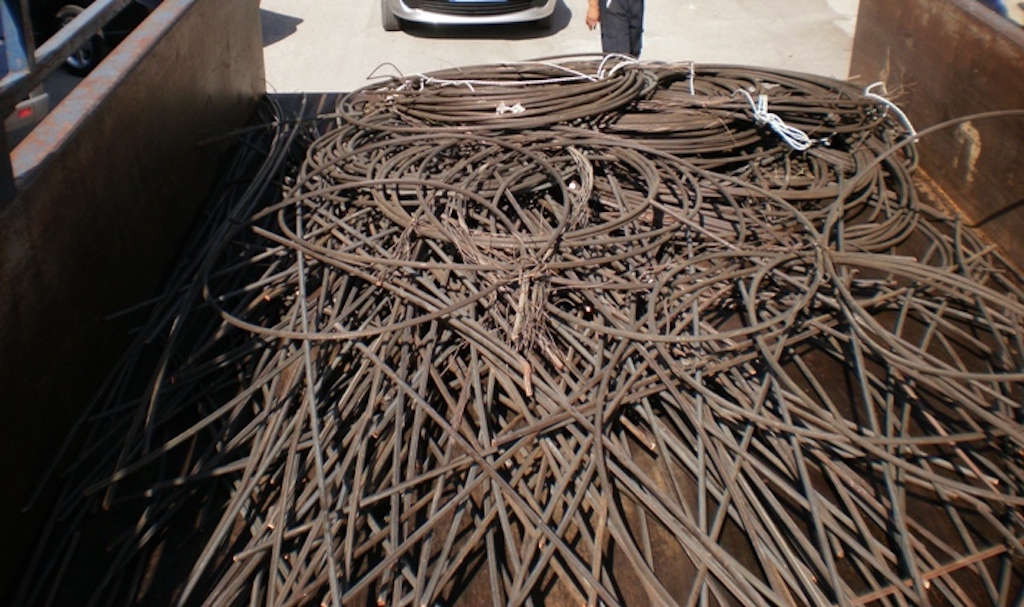
.
Metal in Greece, the railway, and the “networks”
In Greece, as we mentioned, primary copper is no longer produced from deposits all over the country. There is only secondary copper resulting from recycling. Its quantity and origin cannot be accurately estimated, because this method is largely carried out by a network of illegal collectors and processors not controlled by the Greek State.
The only copper production in Greece is made with Illegal Recycling and Illegal Metallurgy, that is, metallurgy which under the pretext of recycling spreads with the ultimate goal of illegal enrichment. Of course, there are also imports of copper and its by-products. Greece exports important copper products, such as pipes and rods, to countries such as Turkey.
Unexploited copper deposits existed and exist both in the Aegean islands and in mainland Greece, with the largest deposit in Skouries, Halkidiki. In the area of Limogardi in Lamia there are underground mines from the operation of an ancient mine.
Every year in our country there is a demand for 25,000 tons of copper. According to reports, the damage from the theft of material from the Greek railway exceeds €10,000,000 per year. Scrap yards, known as “metalladika”, receive the stolen goods and then transfer them to illegal foundries to be sold as pure copper in small and large industries and crafts.
A kilogram of copper is sold from 6.5 to 7.35 euros by the gangs to the scrap yard owners, while thefts are now also observed in inverters.
The profit for the scrap yard owners is clearly greater, as when they accept the stolen goods they do not cut invoices and their transaction is nowhere to be seen for tax purposes.
“They are told they are in danger and that is why they usually buy half a euro or a euro less than what is normally sold. Also, they are told that because they will not give them the relevant papers they must buy them at a lower price,” the president of the Roma Confederation of Greece, Makis Botis, recently told “Macedonia”. According to him, “in Thessaloniki, there are more than 10 scrap yards working with Roma for illegal copper.”
“The owners in the yards, most of the time know that what they offer is stolen,” assures the president of Southeast Attica Police Officers, Giorgos Kalliakmanis: “Nevertheless, they accept them and in possible control, they say that is not impossible to know where do they find the copper.”
How Germany and Britain solved the problem of copper theft from railways
The looting of railway cables takes the form of organized crime. But if the copper they were stealing could be branded, then its resale value would plummet. The thieves would know that the police can link them to a specific theft and that they will be convicted. In other countries, the railway industry has already been using this way for years to put an end to cable theft.
The German Railways (Deutsche Bahn) managed to prevent thefts in their network, which spans 34,000 kilometers across Germany. The distance of the network is equal to one and a half times around the world. Greece, on the other hand, has a modest rail network of 2,345 km, one of the smallest in the EU.
Since 2012, German Railways has been marking the cables with an invisible material, artificial DNA. It is a specially formulated spray containing ultraviolet indicators, synthetic DNA, and metal particles. The spray is simply sprayed on cables and any other equipment on the railway network line.
The spray, called SelectaDNA Trace, is indicated for marking metals outdoors and contains two identifiers that identify who is the registered owner. The code on the metal particles contained in the solution can be read on the spot without the need for laboratory analysis and is linked to a secure database accessible to the police at any time.
In 2011 alone, the material damage to the German railway amounted to EUR 15 million, with additional costs and losses stemming from cancellations in services. That year 11,000 trains in the country had a total of 150,000 minutes of delays as a result of metal theft.
By the next year, they had already sprayed DNA on the cables in Saxony, Saxony-Anhalt, Hamburg, North Rhine-Westphalia, and Saarland. In the same year (2012) the German railway operator Deutsche Bahn reported the first arrest of two metal thieves in Saarland after they tried to sell a cable to a scrap merchant. The dealer suspected and alerted the local police.
Police found that the cable was marked with a high-tech and uniquely coded DNA forensic marker and this allowed them to connect it to the German Railway. The two men were then arrested and taken into custody.
In July 2012, Deutsche Bahn, Deutsche Telekom, the utility provider RWE and the German Metal Dealers Association established a security partnership to combat metal theft. The thefts of cables and metals were not limited to trains but had spread to other networks such as the Internet and telephony, resulting in damage to the telecommunications network.
In Britain, artificial DNA is also being used to counter the theft of railway cables. In 2012-13, this method helped reduce cable theft on Network Rail’s Anglia line by 82% and reduced delays by 86%.
In addition to cables, they protect infrastructure, tools, and equipment in the same way.
In 2016, cable theft using artificial DNA had already stopped on the HS1 line. Up to 2,000 signposts have also been placed along the route to indicate that every metal and cable is protected. And only such marking, according to British railway workers, is a key deterrent, since thieves know that a marked cable is practically useless to them and will tie them to the stolen goods directly.



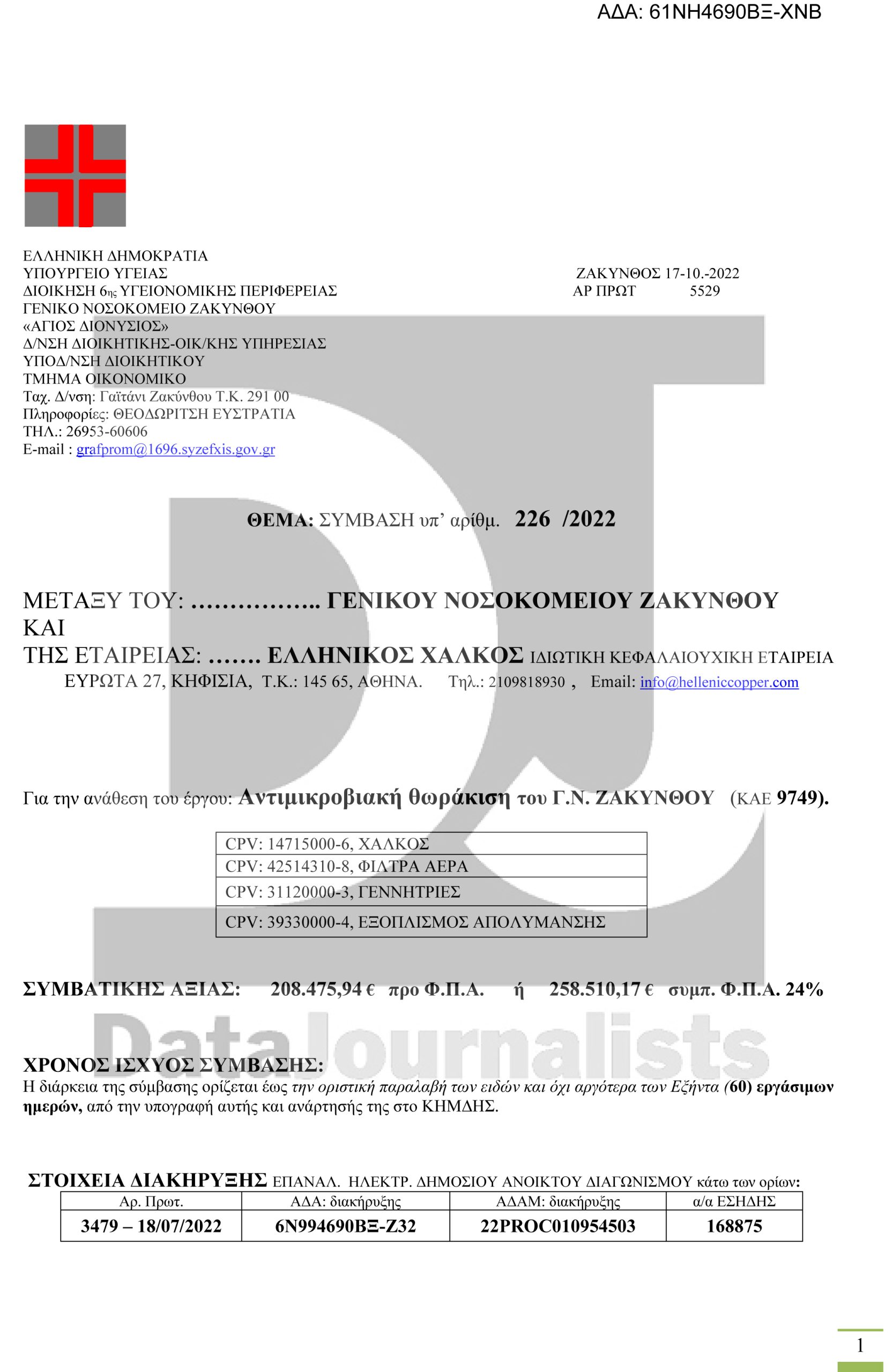
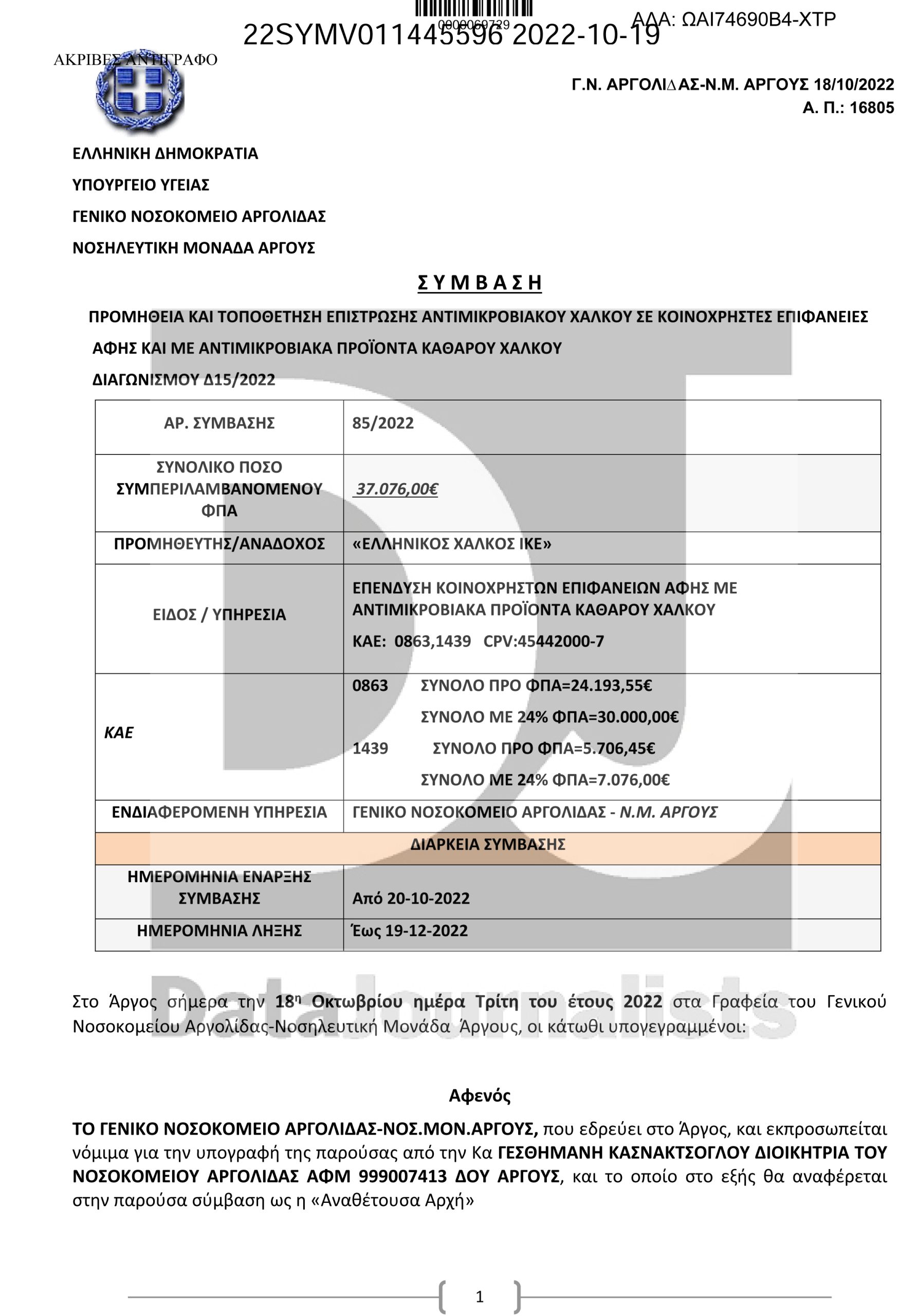
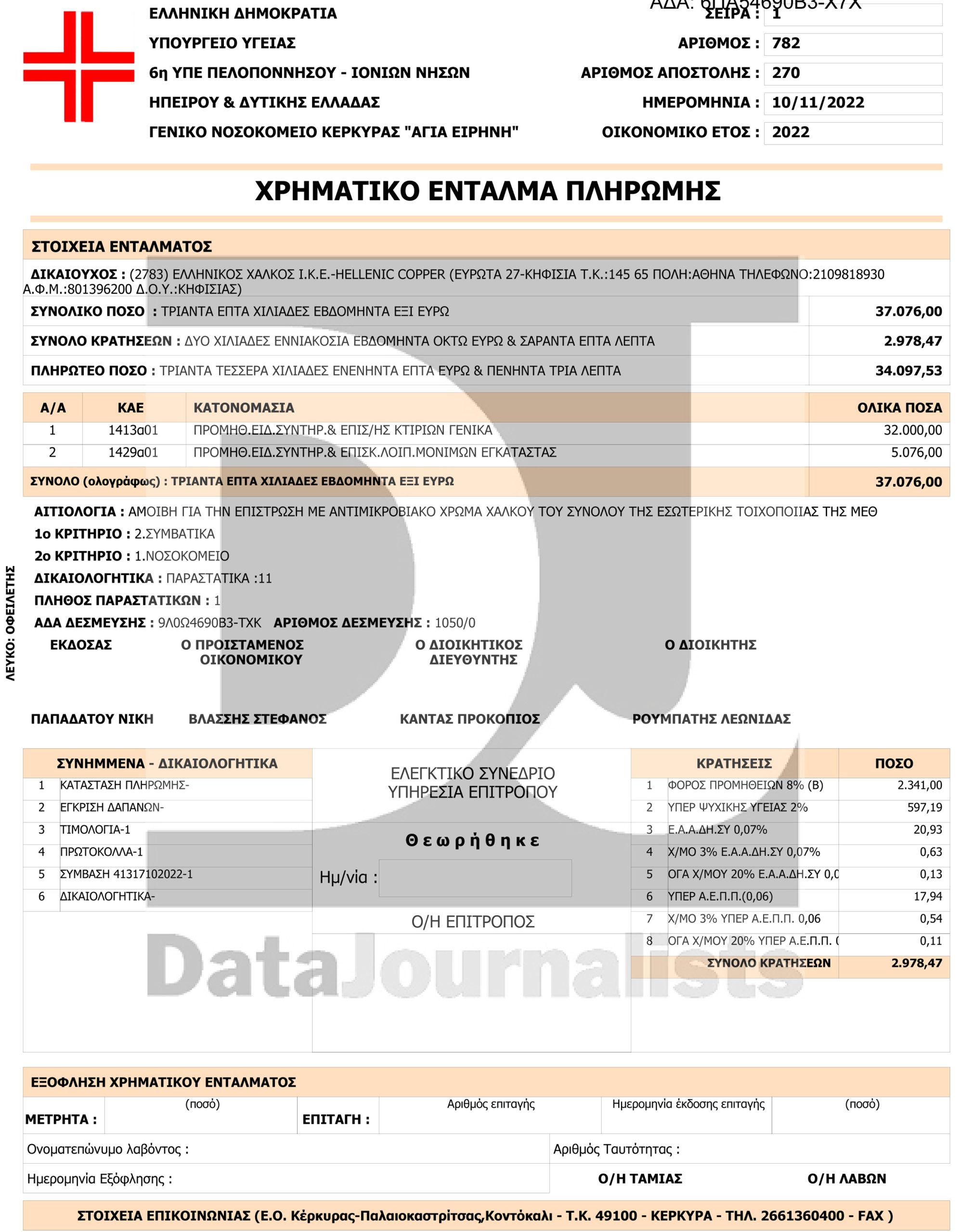




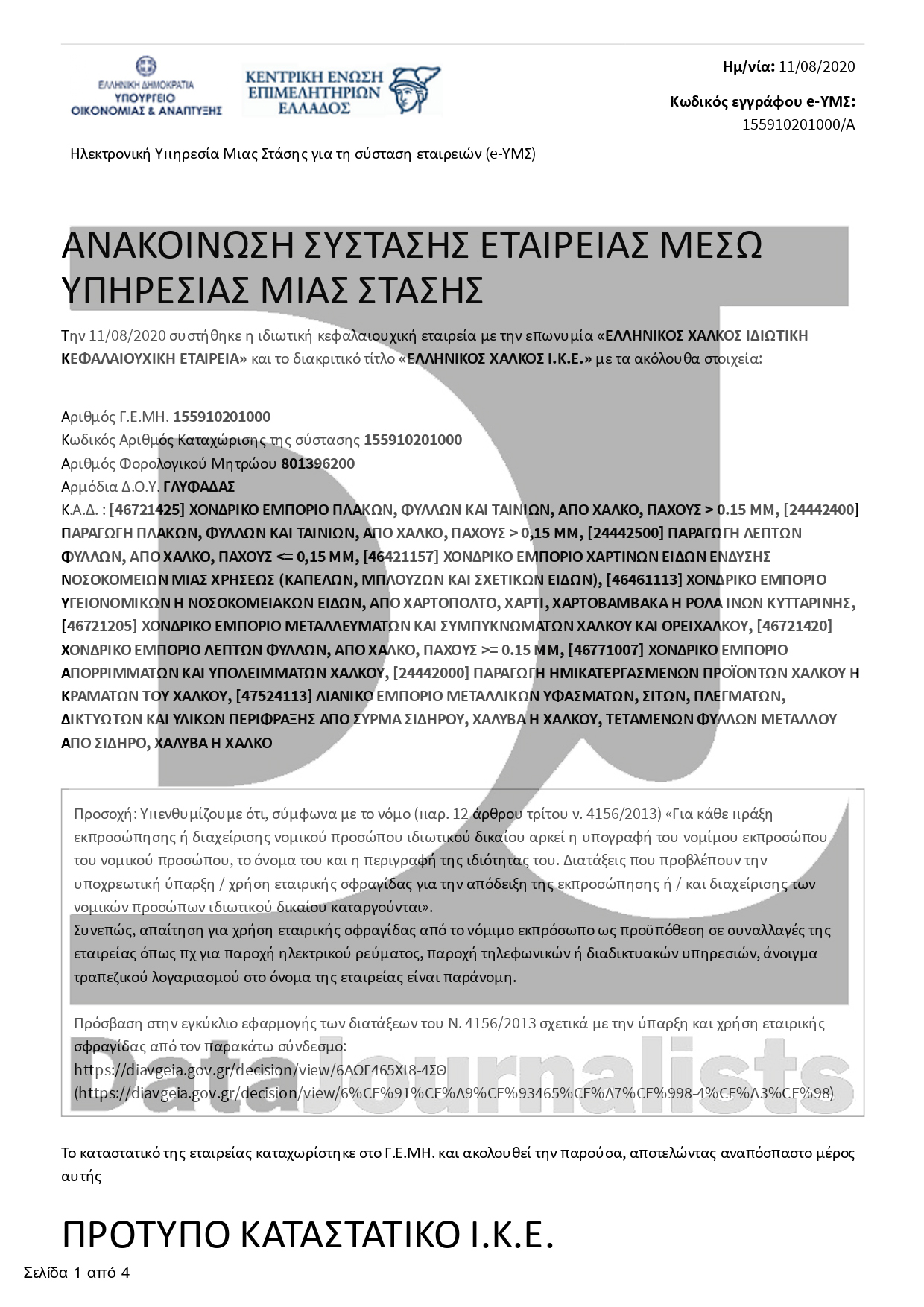
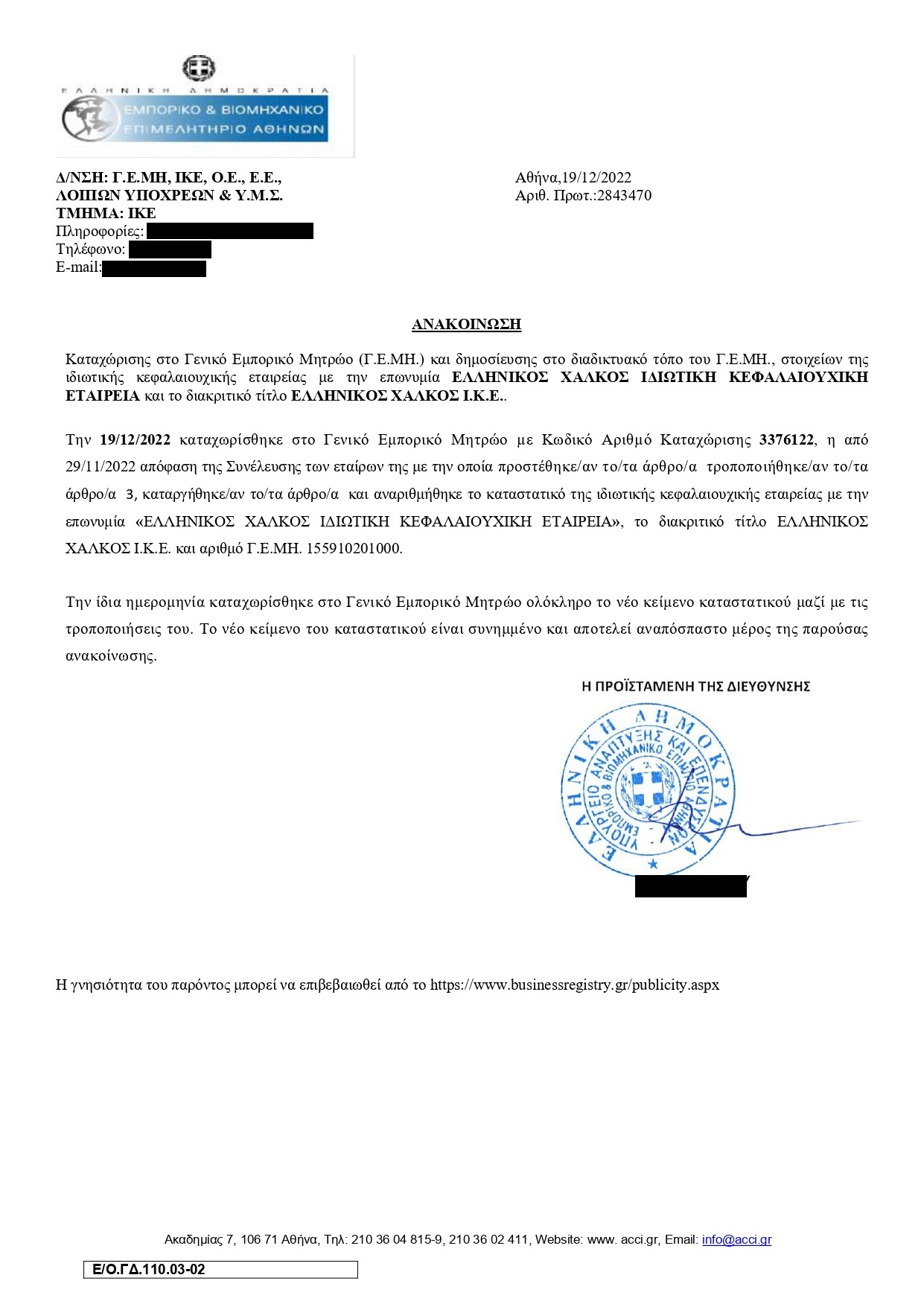
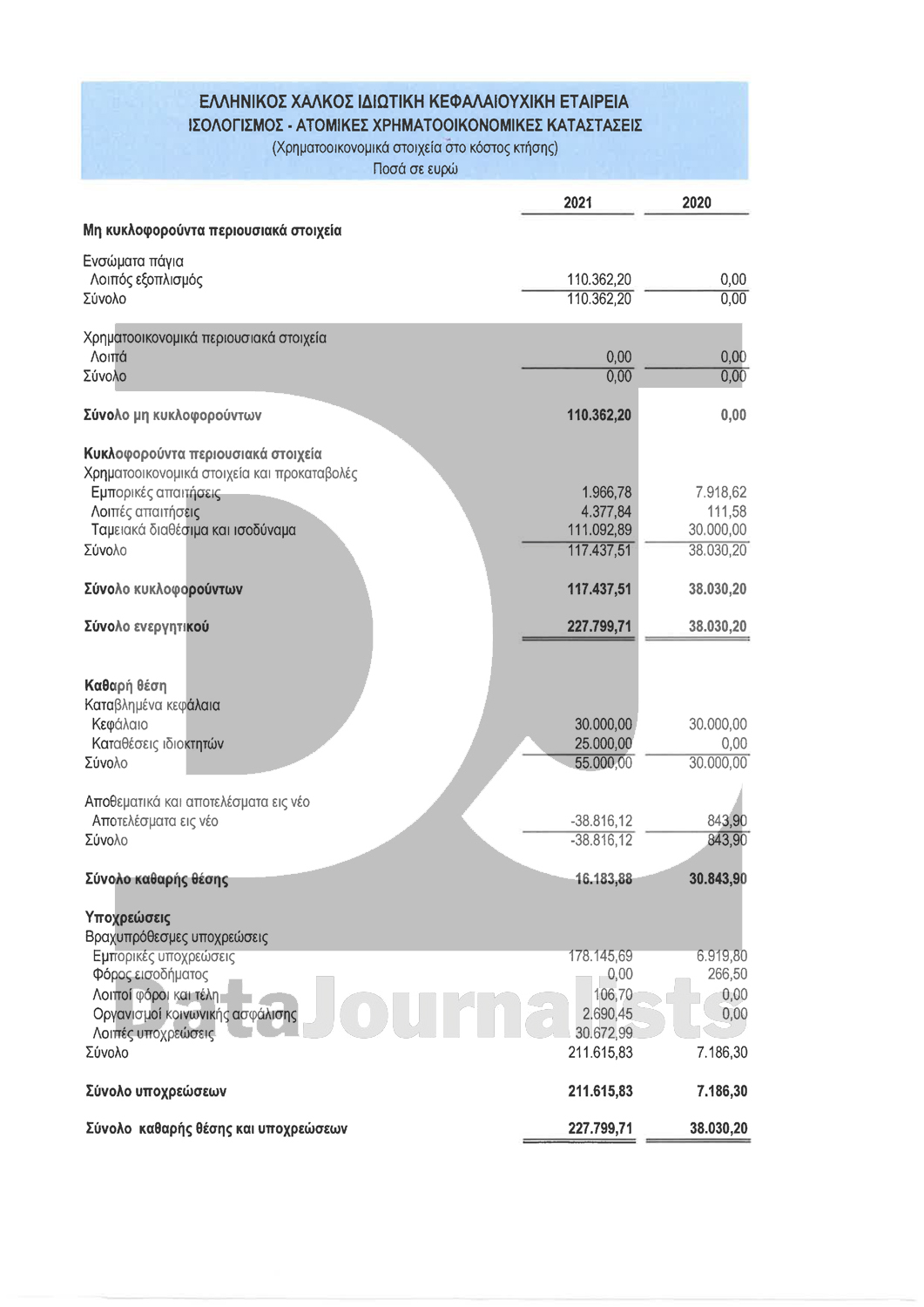
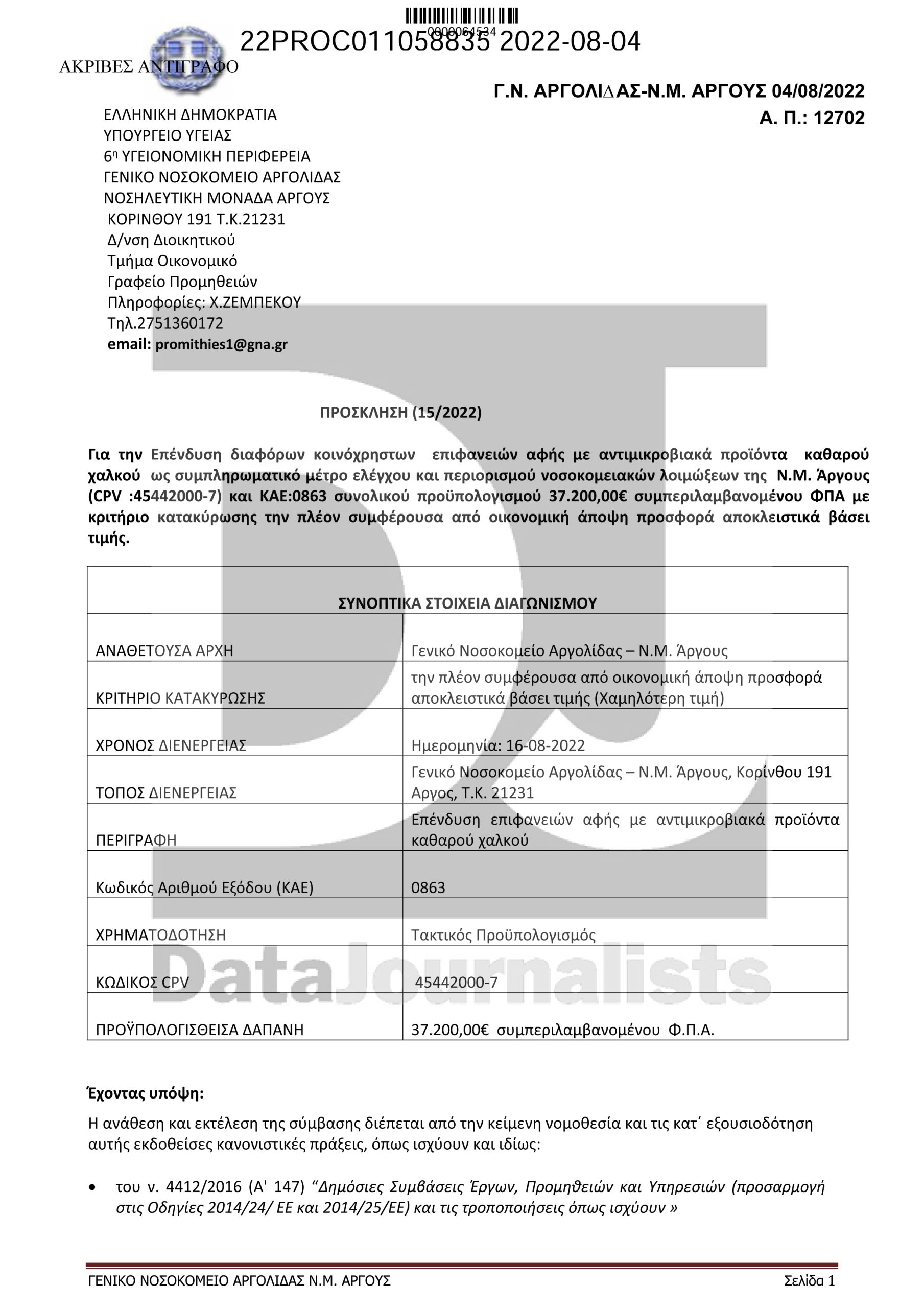







Discussion about this post